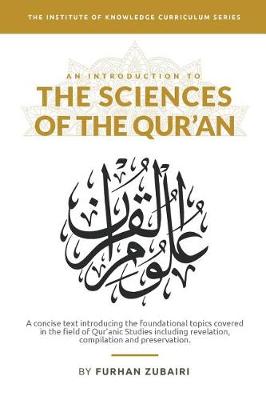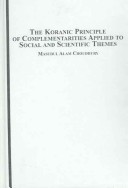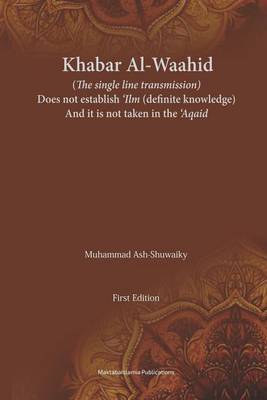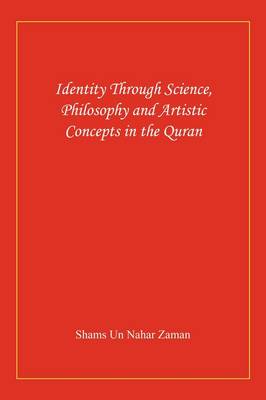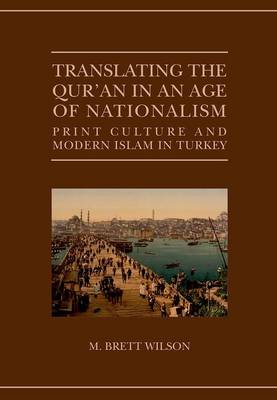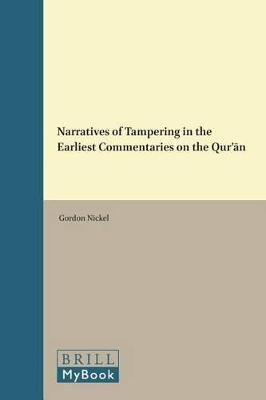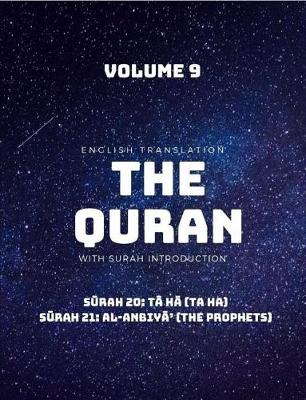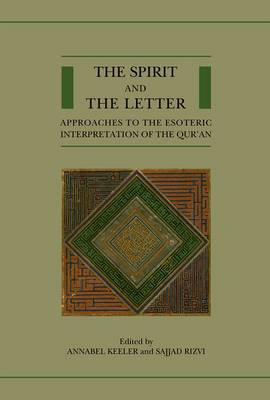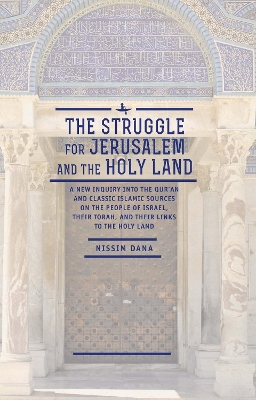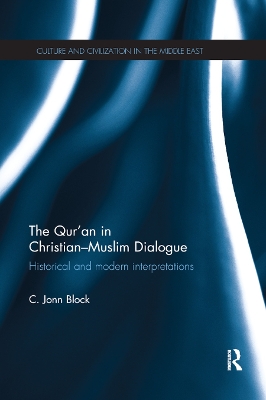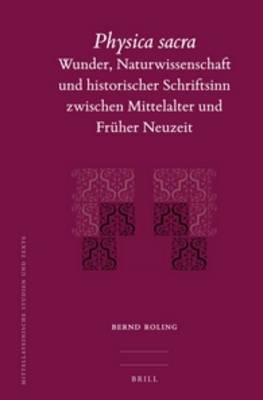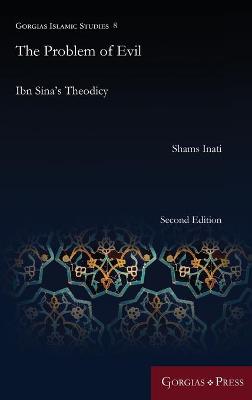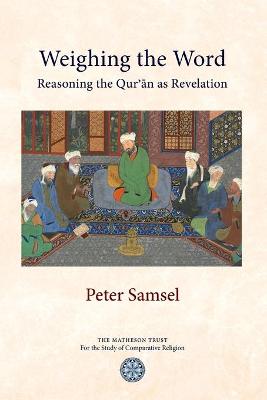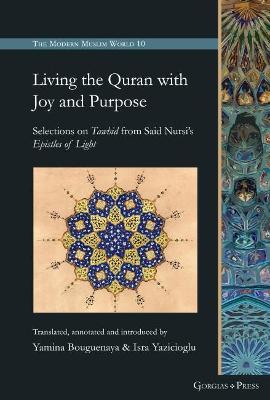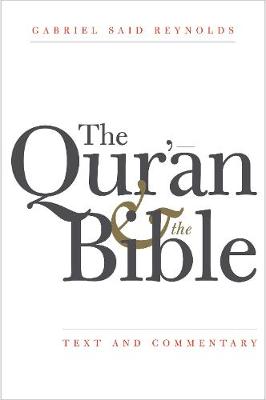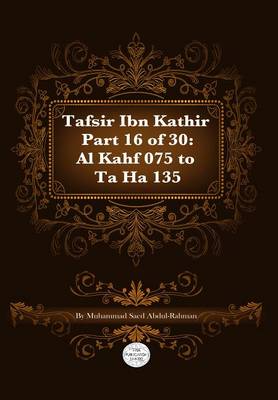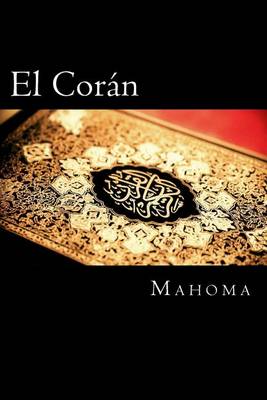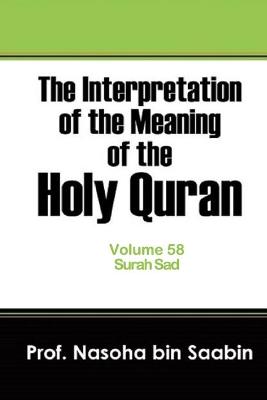Die Haresiografie Im Kitab Az-Zina Des Abu Hatim Ar-Razi (Arabische Studien, #16)
by Cornelius Berthold
An Introduction to the Sciences of the Qur'an (The Foundational Sciences, #1)
by Furhan Zubairi
The Koranic Principle of Complementarities Applied to Social and Scientific Themes
by Masudul Alam Choudhury
Khabar Al-Waahid (the Single Line Transmission)
by Muhammad Ash Shuwaiky
The Holy Quran for School Children (Holy Quran for School Children, #30)
by Yahiya Emerick
Identity Through Science, Philosophy and Artistic Concepts in the Quran
by Shams Un Nahar Zaman
Translating the Qur'an in an Age of Nationalism (Qur'anic Studies)
by M. Brett Wilson
Over the course of the past two centuries, the central text of Islam has undergone twin revolutions. Around the globe, Muslim communities have embraced the printing and translating of the Qur'an, transforming the scribal text into a modern book that can be read in virtually any language. What began with the sparse and often contentious publication of vernacular commentaries and translations in South Asia and the Ottoman Empire evolved, by the late twentieth century, into widespread Qur'anic tran...
Narratives of Tampering in the Earliest Commentaries on the Qur'an (History of Christian-Muslim Relations, #13)
by Gordon Nickel
The Muslim accusation of the corruption or deliberate falsification of pre-Qur'anic scriptures has been a major component of interfaith polemic for a millenium or more. The accusation has frequently sought attestation from a series of "tampering" verses in the Qur'an. Investigation of the interpretation of these verses in the earliest commentaries on the Qur'an, however, reveals a discrepancy between the confident polemical accusation and the tentative understandings of the first Muslims. Of gre...
The Quran - English Translation with Surah Introduction - Volume 9
by Saheeh International Translation
The Spirit and the Letter (Qur'anic Studies)
This volume is the first to focus specifically on esoteric interpretation as a phenomenon in the field of Qur'anic exegesis and to show the plurality of ways it has been manifested in different Muslim traditions. Concern with the inner, spiritual implications of the Qur'an has usually been associated with mystical and Sufi trends in Islam. However, there have also been exegetes among the Shi'a, as well as among philosophers, who sought to supplement their understanding of the Qur'an's apparent m...
The Struggle for Jerusalem and the Holy Land (Israel: Society, Culture, and History)
by Nissim Dana
The Struggle for Jerusalem and the Holy Land Between Judaism and Islam is a new inquiry into the Qur'an and classic Islamic sources on the people of Israel, their Torah, and their links to the Holy Land. In recent generations, the Muslim and Arab world has been suffused with publications on the subject of the people of Israel and their affinity to the Land of Israel. Most of these publications are tendentious, written with a hostile attitude toward Jews and Judaism; indeed, some of them are tain...
The Qur'an in Christian-Muslim Dialogue (Culture and Civilization in the Middle East)
by Corrie Block
Offering an analysis of Christian-Muslim dialogue across four centuries, this book highlights those voices of ecumenical tone which have more often used the Qur’an for drawing the two faiths together rather than pushing them apart, and amplifies the voice of the Qur’an itself. Finding that there is tremendous ecumenical ground between Christianity and Islam in the voices of their own scholars, this book ranges from a period of declining ecumenism during the first three centuries of Islam, to...
Was it a whale or a shark that devoured Jonah? And how were the walls of Jericho brought down? In his wide-ranging study, Physica Sacra, Bernd Roling shows that the natural sciences and biblical exegesis have not always stood in stark opposition to one another. From the high Middle Ages, Bible commentators such as Albertus Magnus and Alonso Tostado made extensive use of the knowledge available in their times about zoology, medicine and astronomy to explain the wonders of revelation and to defend...
Who of us has not wondered why a God with absolute attributes causes or allows evil in the world? This most puzzling issue, known as the problem of evil, received significant attention from Ibn Sina. In the present work, Dr. Inati argues that Ibn Sina provides seven theses to justify God's causing or allowing the presence of evil, and that only the thesis which relies on God's omnipotence as defined by Ibn Sina eliminates the problem of evil in his philosophy. The book is an original piece of wo...
Living the Quran with Joy and Purpose (The Modern Muslim World, #10)
by Yamina Bouguenaya and Umeyye Yazicioglu
The current volume is an annotated translation of selections from a noteworthy Muslim theologian Said Nursi (1876-1960) on the Quranic theme of oneness of God (tawhid). Given the scarcity of theological themes in Islamic literature in English as well as the lack of studies on Said Nursi, who wrote in Ottoman Turkish, the book is an important contribution to the field. It offers a contemporary peek into the view that faith in God could be profoundly meaningful and fulfilling spiritual path.
A groundbreaking comparative study that illuminates the connections between the Qur'an and the Bible While the Hebrew Bible and the New Testament are understood to be related texts, the sacred scripture of Islam, the third Abrahamic faith, has generally been considered separately. Noted religious scholar Gabriel Said Reynolds draws on centuries of Qur'anic and Biblical studies to offer rigorous and revelatory commentary on how these holy books are intrinsically connected. Reynolds demonstrat...
El Coran (the Koran, Spanish-Language Edition) (Spanish Edition)
by Mahoma

